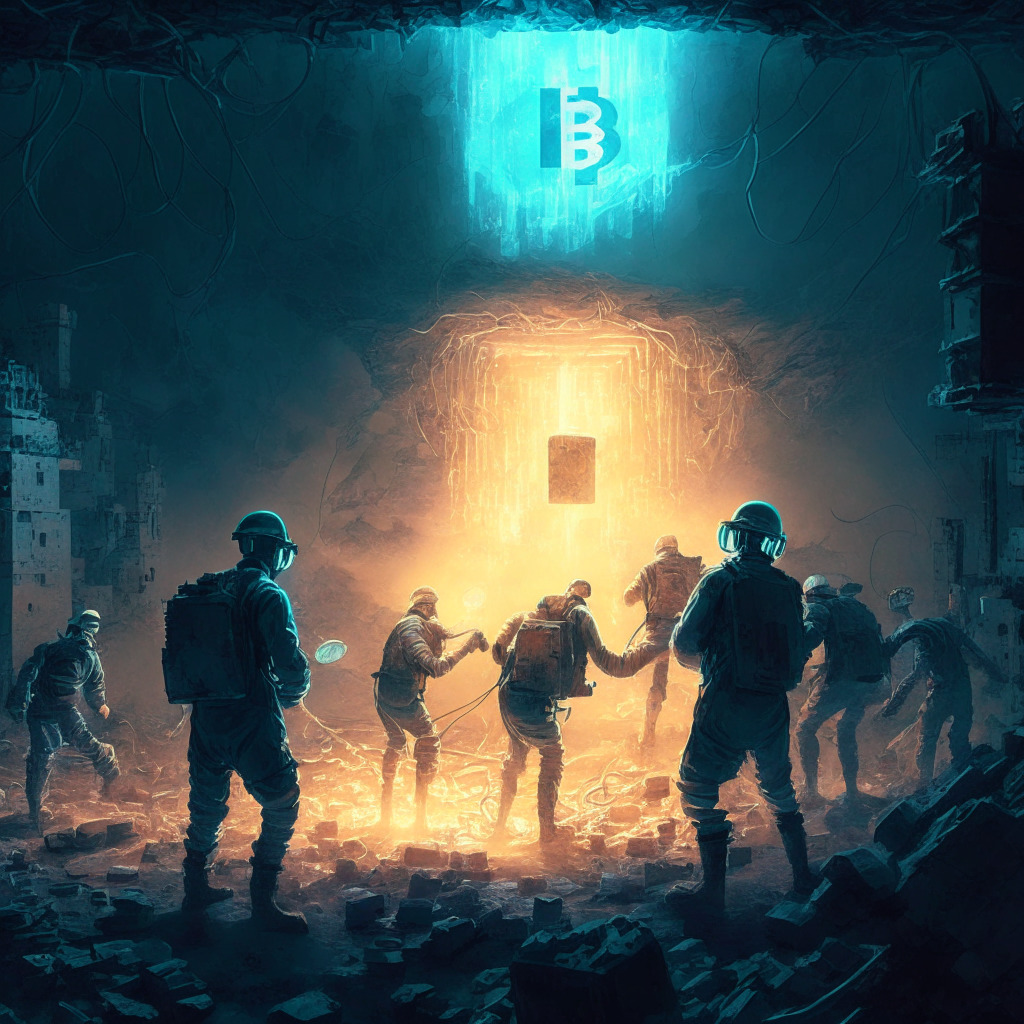The recent “BitVM: Compute Anything on Bitcoin” white paper by ZeroSync’s project lead, Robin Linus, proposes a new way to implement complex off-chain smart contracts on Bitcoin. Based on a Turing Complete system, this method would broaden Bitcoin’s operations to include applications like tactical games verification, bridging BTC to foreign chains, and constructing prediction markets.
Search Results for: Hash Blockchain Limited
Infamous Chisel vs Blockchain Innovation: A Tug-of-War in the Crypto Space
“The Russian malware, Infamous Chisel, is presently threatening cryptocurrency wallets and exchange applications, specifically targeting Brave browser, Binance and Coinbase exchanges, and Trust Wallet. The malware provides persistent access to infected Android devices, constantly extracting valuable information. Alchemy’s recent support for Base opens new opportunities for blockchain development.”
Unleashing Crypto in Hong Kong: A Leap or Overstep by HashKey and The Government?
Asian digital asset exchange, HashKey, has gained regulatory clearance to offer Bitcoin and Ethereum trading services in Hong Kong. However, retail customers will be limited to 30% of their total digital portfolio for safeguarding interest and reducing risk exposure.
Tether’s Strategic Partnership with Georgian Government: A Boon for Blockchain Startups or a Bane for Power Resources?
Tether, the company behind USDT coin, is partnering with the Georgian government to establish a fund for supporting local blockchain startups. The alliance aims to boost Georgia’s tech sector and increase the adoption of peer-to-peer payment systems. Despite initial challenges, Georgia continues to aim for crypto adoption, with Tether committed to fostering a thriving startup ecosystem.
Bitcoin Miners Struggle: Shrinking Revenues, High Difficulty, and Impacts on Network Hash Rate
Bitcoin miners face decreasing revenues due to a cooldown in Ordinals activity, all-time high mining difficulty, and costs. Glassnode reports miners sending more coins to exchanges as the seven-day average earnings fell from $33.9 million to $25.8 million. This could potentially lead to another period of capitulation and reduced network hash rates, impacting Bitcoin’s future.
Challenges and Solutions for a Decentralized Blockchain Future: Exploring Scalability, Energy, and Power Imbalances
Blockchain technology promises a decentralized, secure, and transparent system for digital transactions. However, it faces challenges such as centralization of power, limited scalability, high energy consumption associated with hash rates, and concentration of wealth among early adopters. Developing solutions to address these issues and educating more people about the technology can help create a decentralized future that benefits all.
Hong Kong’s SFC to Publicly List Licensed Cryptocurrency Exchanges: A Step Towards Transparency
Hong Kong’s Securities and Futures Commission (SFC) plans to publish a list of cryptocurrency trading companies that have applied for operational licenses, bringing transparency to the industry. Nevertheless, this doesn’t guarantee rule conformity. This follows a major financial scam involving unlicensed cryptocurrency exchange JPEX which reportedly caused significant losses for investors. The SFC emphasizes strict governance measures including asset safety and market manipulation prevention to ensure investor protection.
Casio’s Dive into NFTs: Innovative Approach or Marketing Strategy?
“Blockchain technology has enabled a new form of virtual ownership, NFTs. Notable brands like Casio are utilizing this tech, releasing 3D model G-Shock NFTs as a novel blending of loyalty programs and blockchain. However, whether this represents innovation or a simple marketing ploy remains to be seen.”
The Micro Revolution in Bitcoin Mining: Pocket-Sized Devices Against Industry Secrecy
Micro Bitcoin mining devices are small, cost-effective tools that aim to defy the secrecy and exclusivity associated with Bitcoin mining. Bitmaker’s devices, costing around $3, offer accessibility and transparency, fostering understanding and community participation in cryptocurrency despite limited profitability. These innovations symbolize a step towards democratization and decentralization in the crypto world.
Navigating the Stormy Seas of Digital Assets: Promising Advances and Regulatory Pitfalls
“The digital assets landscape is dynamic, but not insulated from regulatory scrutiny. Despite substantial backing, some ventures like Nifty’s struggle, while partnerships like Tel Aviv Stock Exchange and Fireblocks demonstrate promising blockchain confidence. However, the translation of tech potential to market reality presents challenges.”
Navigating the Maze: The Trials and Triumphs of Establishing Hong Kong as a Crypto Hub
“Hong Kong is working towards becoming a crypto hub, but faces challenges such as difficulties for crypto companies in opening corporate bank accounts. Despite the slow pace of local regulatory organizations, efforts are being made to ease these obstacles with initiatives like Hong Kong Monetary Authority urging significant lenders to accept crypto exchanges as clients.”
The Final BTC: What Happens to Miners After Last Bitcoin is Mined?
After Bitcoin hits its 21 million coin limit, mining rewards will disappear but miners’ roles won’t be redundant. Instead, transaction fees will become progressively important to Bitcoin mining economics. However, the actual transition to this new era won’t begin until around 2140. The effects on the long-term value of Bitcoin remain unpredictable, with factors like market demand and regulatory climate coming into play.











